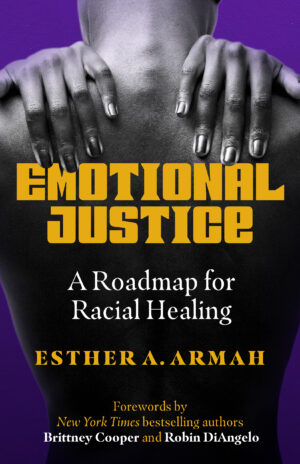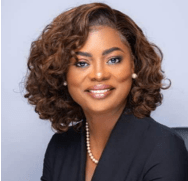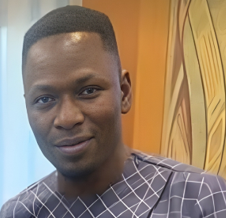Africa. We are a continent of jewels, a dumping ground for waste and a landscape of extraction. This threesome is part of a lingering legacy of culture, enslavement and colonialism that stubbornly persists. Changing it is our work. Challenging it is a necessity. Transforming it is a journey.
Let’s talk about that journey.
On our corner of this lush Continent, we are lauded as Africa’s gateway and for our political stability. We are one of only two nations responsible for the world’s cocoa supply, and we are not a chocolate superpower. We could be. We know we should be. Becoming that is about that transformation journey. When it comes to cocoa, extraction is our story.
In our corner of this jewel of a Continent, our most precious resource is us; the beings and bodies whose lives, minds, dreams, brilliance and ambition are the key – and always have been the primary key – to prosperity and transformation. Our minds are shaped by dual forces – the beauty of a culture and all the richness that comes with it; and the beast that is global white supremacy, and all the ruin and legacy that comes with that.
Both matter in navigating a journey of racial healing. The journey of our bodies split a people, a family taken, stolen from Africa who would end up in America, the Caribbean, Brazil, Europe, Latin America. That split did irreparable harm. There were two wounds – the wounds of those who were stolen, and the wounds of those who remained. Part of our racial healing journey is between us as a global Black people to journey back to being beside each other through the wounds, trauma, harm, anger, betrayal, rage, pain that stands between us and inside us. For this we need emotional justice. When it comes to people, extraction is a major part of our story.
That journey is not necessarily physical, it is in how we engage and exchange with each other in an increasingly digital global village. It is in how we see each other, and how that seeing manifests in who we are to each other, and how we build with each other, and for each other’s future. This is a journey filled with uneasiness, pain and trauma – there are feelings of betrayal and resentment, of rupture, of profound loss and grief. Those feelings then turn into pathways and processes of labor, leadership and learning.
 Here we stand. A nation and a continent bound by these dual dominant forces of global white supremacy and extraordinary culture. How do we transform a legacy, how do we shed the beast that is global white supremacy? A journey of transformation means racial healing in its most radical and transformative sense. And that means Emotional Justice.
Here we stand. A nation and a continent bound by these dual dominant forces of global white supremacy and extraordinary culture. How do we transform a legacy, how do we shed the beast that is global white supremacy? A journey of transformation means racial healing in its most radical and transformative sense. And that means Emotional Justice.
Centering Africa within a racial healing model, is different than including Africa, and African artefacts, culture, art, labor. Centering Africa transforms racial healing, and reconfigures a narrative that has so far centered the West. That’s because global white supremacy centers itself, and brutally demands – and has always demanded – the world center whiteness too. And Africa does – and it has – that is part of the cancerous legacy of white supremacy on this Continent. Emotional Justice is a call to Africans to center – and wrestle with – who we have become due to this global beast that is white supremacy, and who that becoming continues to serve.
It means we remove our own blinkers about colonialism’s legacy, and how it continues to shape how we see ourselves, who and what we value, and how that valuing shapes how we lead and learn. Centering Africa within racial healing means reckoning with colonialism’s legacy that manifests in all corners of our economy – from extraction of natural resources, becoming a dumping ground for the most toxic of waste – electronics, used clothing, dangerous chemicals from Europe – to the communications colonizing taking place by China in different African nations, and our education model.
It means doing our emotional work – understanding how the world of the emotional has been shaped by oppressive, brutal systems and that manifest in how we see ourselves, and each other. Doing that work means unlearning a narrative of whiteness that taught us all how the world came to be and our role in it. It taught us whiteness was a global savior and civilizer, and Africa was filled with savages needing civilizing. That deadly fiction lingers.
Part of our challenge is the illusion that to be surrounded by the beauty of Africa and Blackness means to evade colonialism’s legacy inside of us and our spaces of governance, models of education, and processes of art and culture. Not true. But it is a seductive illusion. Legacy lingers in how we lead, learn and work. Colonialism’s legacy shows up powerfully in our Continent.
Fabric and freedom. The fabric of Europe and America’s economies is built and sustained by the stolen freedom of bodies on this Continent. From the vast rubber and timber of Congo, and Belgium’s brutal extraction, to Kenya and the UK’s brutality during the Mau Mau Battle for Land and Freedom; to the stolen peoples of Ghana by Europe, to France’s economy propped up by the 13 French-speaking African nations – the history of how Africa and enslaved Africans built Europe and America is known – even as it continues to be contested, rejected, and reimagined.
What Africa, and people of African descent, are owed by the West is a crucial part of the reparations discourse – and rightly takes a major space on the global reparations stage. Africa’s racial healing spells the end of this toxic twosome of our Continent as a landscape of waste dumping and raw mineral extraction. Such a healing troubles those nations for whom power is about dominion, subjugation and exploitation. There is no co-existence or equity if oppression is the foundation. That is not possible, nor probable. The West does not seek repair, but is wary of repercussions due to the blood that stains its soil.
Right now, a journey of repair through legislation and discussion is happening in America and across Europe in the hallways of political power, on the ground in grassroots organizations, in cultural institutions, and within the world of philanthropy. Reparations. Centering Africa by Africans is a game-changer, and crucial as part of a global reparations movement that has diligently worked for years, and is now gaining traction and steam due to those efforts and the global circumstances of pandemic, police brutality with the murder of George Floyd, and the global protests that followed. The repair required from the colonizer nations is unquantifiable. But numbers matter, so cost calculation will – and indeed must – continue. Reparations are an integral part of a future that serves humanity, not one that privileges whiteness.
For the bodies on this Continent who remained and fought Colonizers, and for those who were stolen, there are other racial healing questions. The primary one: what do we owe each other as a global Black people? Can we return to our former glory? We cannot. We can be informed by that glory to create a future that reckons with a becoming that better serves us, our nations, our people, our land, and our future. That becoming requires a journey we have yet to take among each other – one of Emotional Justice.
Emotional Justice is a roadmap for racial healing that centers global Black people, our particular history, and the legacy we walk with due to the systems of oppression that shape us, and with which we continue to struggle. This week in Ghana, the first racial healing and reparations summit takes place. Led by the Africa Transitional Justice Legacy Fund, a space is being convened to explore a racial healing and reparations centering the Continent. That matters because so often in the reparations space, centering Africa is not something that has happened. That is our failure, and one we must rectify.
There can – and must be – racial healing between us – as a global Black people. Centering Africa in a racial healing model means emotional justice. That means asking the question: what do we owe each other as global Black people?
We are a Continent of creators, where from fabric to freedom, we made a way out of the deadly force of white supremacy to a kind of independence. On this side of that fight we must embark on a journey that wrestles with who we have become, who that becoming serves, and who it doesn’t. Such is the legacy that lingers.
Africa needs Emotional Justice.
***
Esther A. Armah is an international award-winning journalist, a playwright, and a thought leader. She is CEO, The Armah Institute of Emotional Justice, and author of ‘Emotional Justice: a roadmap for racial healing.










